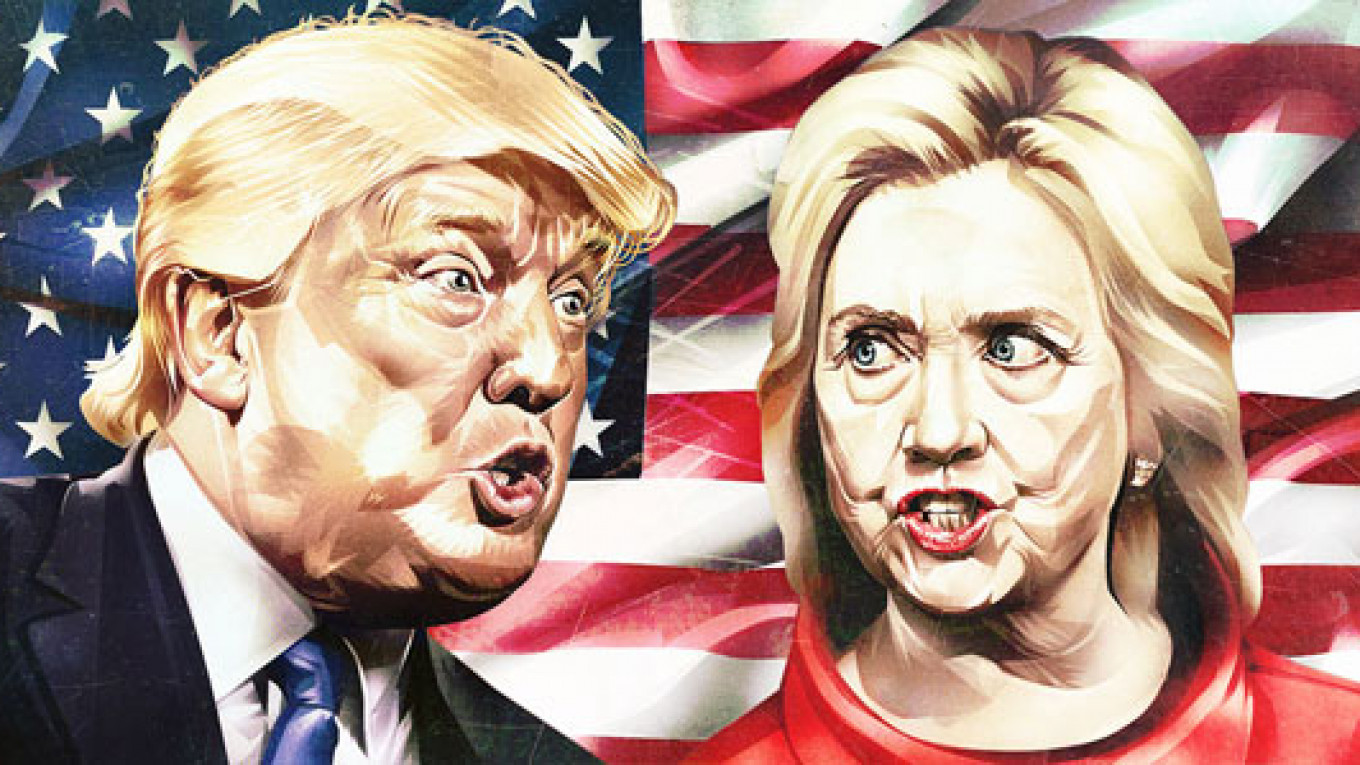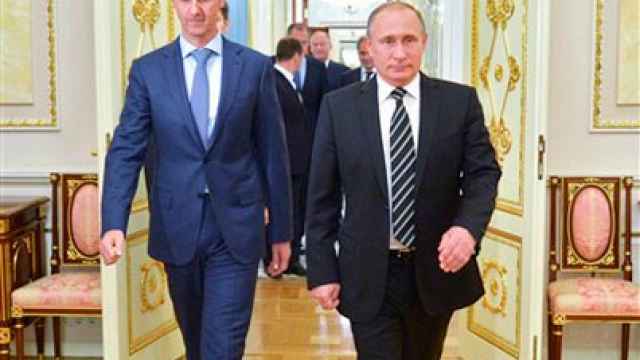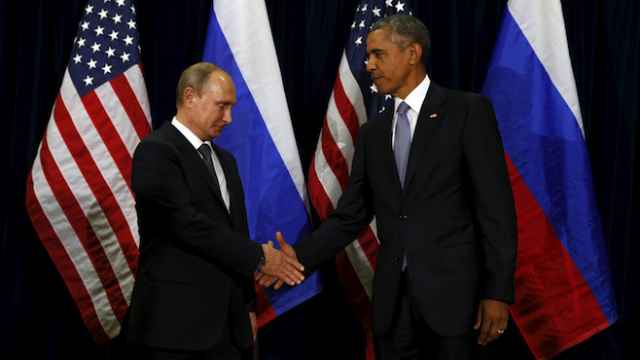 Vladimir Frolov
Vladimir Frolov
Republican voters in Iowa may have thwarted Russian President Vladimir Putin's wish to see the "doubtlessly talented" Donald Trump as the next U.S. president.
Trump, the "absolute leader of the presidential race" as Putin described him back in December, came in second in Iowa with 24 percent of the vote, behind Senator Ted Cruz at 28 percent. Trump failed to convert his handsome lead in the polls into actual votes thanks to poor campaign management and an incoherent message.
Although Trump still enjoys a commanding lead in New Hampshire, which holds its primary on Feb. 9, and in South Carolina — Feb. 20, the loss in Iowa appears to have pierced a hole in The Donald's balloon of inevitability. His march to the Republican nomination may be about to crater, or at least prove more arduous and costly than it has thus far. Trump's train may have left the station, but it is not heading toward the White House.
Part of the reason for this is Senator Marco Rubio, whose last-minute surge in Iowa to finish a close third (23 percent), has resuscitated the Republican establishment's hopes for a strong and unifying candidate who could actually govern the country. Rubio, not Cruz, is the real winner in Iowa, and his result changes the dynamic of the race as the Republican establishment and major donors begin coalescing around his candidacy.
Cruz, a conservative zealot hated within his own party, is likely to fade after New Hampshire were Rubio to keep gaining momentum. Jeb Bush will be pressured to withdraw from the race and should be lining up for a Cabinet position now.
It is not hard to see why Putin endorsed Trump before the voting started. Although Putin's sense of U.S. politics is somewhat uninformed, this time around he knew exactly what he was doing — trolling the U.S. political establishment. Trump's campaign message has been that American elites are morons and losers and that a strong leader like him is needed to clinch advantageous deals for the United States — particularly when negotiating with strong leaders like Vladimir Putin. A Trump presidency would shatter the U.S. political system and leave the country distracted and weak — hence Trump's appeal to the Kremlin.
Trump's boast that he had met Putin once in New York and felt that he could build a strong and close relationship with Russia — cited by Putin as sufficient reason for endorsing him — was not based on anything in particular. Trump has neither a foreign policy platform nor foreign policy advisors, and his understanding of Russia is primitive. But his unmistakably Berlusconi style of leadership, his age and his aura of unrestrained masculinity is something that Putin finds appealing in other foreign leaders — George W. Bush, for example. Putin is known for his highly personalized foreign policy style, which sometimes hurts state relations, as U.S. President Barack Obama and German Chancellor Angela Merkel have learned.
The generational and cultural divide does not augur well for a prospective Putin-Rubio relationship. Rubio has staked out a hardline position on Russia. In a speech last October he pledged to "aggressively confront Russia in Europe and the Middle East" and "contain Russia's aggression in Ukraine" by imposing more sweeping sanctions, visa bans and asset freezes on Russian officials, and U.S. lethal weapons transfers to Ukraine to fight Russia-backed separatists.
He promised to "speak frankly about who Vladimir Putin is and what his regime represents," calling Putin "a gangster and a thug' with whom no U.S. president should be "pleading for meetings." And in an op-ed for Politico.eu on May 8, 2015, Rubio called for bolstering NATO defenses against Russia's "blatant attempt to overturn the post-World War II order in Europe" by permanently deploying significant U.S. forces in Eastern Europe, arming Ukraine and enlarging NATO. This hardly sounds like a template for a reset in U.S.-Russian relations.
The reset may well come from a Hillary Clinton administration, which is emerging from the wreckage of the Democratic vote in Iowa. Hillary Clinton could not afford to lose Iowa and she eked out a win by five votes. That she was virtually tied, after blowing a huge lead in less than three months, with Senator Bernie Sanders, whose socialist candidacy was once considered a joke, is unpleasant, but not lethal. Despite a likely win for Sanders in New Hampshire next Tuesday, Clinton is likely to be the Democratic nominee as she has a commanding hold on the black and Hispanic vote, which will probably carry her into the White House.
Rubio, a naturally gifted politician — often described as a Republican Obama — would be a tough challenger for Clinton, but the economy and demographics favor the Democrats and Obama's successful agenda. Barring an FBI indictment for mishandling classified information, Hillary Clinton could be the first female president of the United States.
Clinton would re-engage with Moscow and largely continue Obama's strategy, a combination of engagement and calibrated pressure. Yet, she has recently emerged as one of Putin's fiercest critics in the United States, comparing his movements in Crimea with Hitler's and urging European leaders not be "too wimpy" in dealing with Putin to push back Russia's influence in the former Soviet Union.
She described her relationship with Putin as "interesting" as they exchanged barbs, sexist comments, accusations of revolutionary incitement, and soul-searching revelations of Putin's family's suffering in World War II. Still, their world views are starkly different. Clinton would likely be unyielding in her rejection of Putin's realist claim of Russia's natural sphere of influence and his defense of Russia's "conservative values" that defy U.S. understanding of human rights and democracy.
A Clinton administration would likely be more interventionist and willing to use force than Obama's White House has been, which would not go down well in Moscow. Clinton was a leading advocate of using military force in Libya in 2011 and she recommended that Obama arm Syrian rebels in 2012. She supports establishing a no-fly zone and safe havens in Syria to protect civilians, which Putin rushed to preempt with a military intervention.
The Moscow-Washington relationship promises to remain a rocky one and its management will require a steady hand, which a President Clinton is more likely to provide than a President Rubio, or, God forbid, a President Trump.
Vladimir Frolov is an international affairs analyst.
A Message from The Moscow Times:
Dear readers,
We are facing unprecedented challenges. Russia's Prosecutor General's Office has designated The Moscow Times as an "undesirable" organization, criminalizing our work and putting our staff at risk of prosecution. This follows our earlier unjust labeling as a "foreign agent."
These actions are direct attempts to silence independent journalism in Russia. The authorities claim our work "discredits the decisions of the Russian leadership." We see things differently: we strive to provide accurate, unbiased reporting on Russia.
We, the journalists of The Moscow Times, refuse to be silenced. But to continue our work, we need your help.
Your support, no matter how small, makes a world of difference. If you can, please support us monthly starting from just $2. It's quick to set up, and every contribution makes a significant impact.
By supporting The Moscow Times, you're defending open, independent journalism in the face of repression. Thank you for standing with us.
Remind me later.








